Ambient
Showing 56051–56100 of 146499 results
-

Adipic Acid-13C6
$784.88 Add to cart View Product DetailsMolecular Formula : 13C6H10O4
-

Adipic Acid-d4 (Major)
$62.10 Add to cart View Product DetailsMolecular Formula : C6 D4 H6 O4
-

Adipic Acid-d4 (Major)
$174.23 Add to cart View Product DetailsMolecular Formula : C6 D4 H6 O4
-

Adipic Acid-d4 (Major)
$308.78 Add to cart View Product DetailsMolecular Formula : C6 D4 H6 O4
-

Adipic Acid-D8
$218.21 Add to cart View Product DetailsMolecular Formula : C6 D8 H2 O4
-

Adipic Acid, FCC
$57.39 Add to cart View Product DetailsAdipic Acid, FCC
-

Adipic Acid, FCC
$57.73 Add to cart View Product DetailsAdipic Acid, FCC
-
Adipic Acid, FCC
$99.61 Add to cart View Product DetailsAdipic Acid, FCC
-
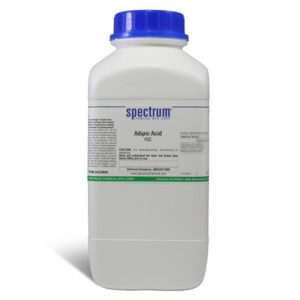
Adipic Acid, FCC
$273.86 Add to cart View Product DetailsAdipic Acid, FCC
-
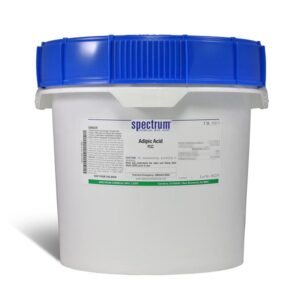
Adipic Acid, FCC
$582.48 Add to cart View Product DetailsAdipic Acid, FCC
-

Adipic Acid, FCC
$2,617.72 Add to cart View Product DetailsAdipic Acid, FCC
-

Adipic Dihydrazide
$37.82 Add to cart View Product DetailsAdipic Dihydrazide
-

Adipic Dihydrazide
$118.61 Add to cart View Product DetailsAdipic Dihydrazide
-

Adipokinetic Hormone (Anax Imperator Mauricianus)
$132.83 Add to cart View Product DetailsMolecular Formula : C45H59N11O12
-

Adipokinetic Hormone (Anax Imperator Mauricianus)
$214.76 Add to cart View Product DetailsMolecular Formula : C45H59N11O12
-

Adipokinetic Hormone (Anax Imperator Mauricianus)
$671.89 Add to cart View Product DetailsMolecular Formula : C45H59N11O12
-

Adipokinetic Hormone (Libellula Auripennis)
$214.76 Add to cart View Product DetailsMolecular Formula : C46H61N11O12
-

Adiponectin, Human(CHO-expressed)
$2,018.25 Add to cart View Product DetailsAdiponectin is an important adipokine involved in the control of fat metabolism and insulin sensitivity. It is synthesized exclusively by adipocytes and secreted into plasma. It antagonizes THF-alpha by negatively regulating its expression. It also inhibits endothelial NF-kappa-B signaling through a cAMP-dependent pathway. Adiponectin can form low molecular weight complexes (LMW), middle molecular weight complexes (MMW) and higher molecular weight complexes (HMW). These bind to various growth factors, such as HBEGF, PDGFB and FGF2, and play a role in cell growth, angiogenesis and tissue remodeling.
-

Adiponectin, Human(CHO-expressed)
$68.14 Add to cart View Product DetailsAdiponectin is an important adipokine involved in the control of fat metabolism and insulin sensitivity. It is synthesized exclusively by adipocytes and secreted into plasma. It antagonizes THF-alpha by negatively regulating its expression. It also inhibits endothelial NF-kappa-B signaling through a cAMP-dependent pathway. Adiponectin can form low molecular weight complexes (LMW), middle molecular weight complexes (MMW) and higher molecular weight complexes (HMW). These bind to various growth factors, such as HBEGF, PDGFB and FGF2, and play a role in cell growth, angiogenesis and tissue remodeling.
-

Adiponectin, Human(CHO-expressed)
$194.06 Add to cart View Product DetailsAdiponectin is an important adipokine involved in the control of fat metabolism and insulin sensitivity. It is synthesized exclusively by adipocytes and secreted into plasma. It antagonizes THF-alpha by negatively regulating its expression. It also inhibits endothelial NF-kappa-B signaling through a cAMP-dependent pathway. Adiponectin can form low molecular weight complexes (LMW), middle molecular weight complexes (MMW) and higher molecular weight complexes (HMW). These bind to various growth factors, such as HBEGF, PDGFB and FGF2, and play a role in cell growth, angiogenesis and tissue remodeling.
-

Adiponectin, Mouse
$2,018.25 Add to cart View Product DetailsAdiponectin is a hormone mainly produced by adipocytes. Adiponectin forms a homotrimer and exists as higher order multimers in vivo. The receptors of Adiponectin are seven transmembrane G protein coupled receptors: Receptor 1 is expressed in skeletal muscle and Receptor 2 in liver. Adiponectin receives a lot of attention because of its anti-diabetic, anti-atherosclerotic, and anti-inflammatory properties. Adiponectin increases the expression of molecules involved in fatty acid transport, combustion of fatty acid, and energy dissipation, and increases insulin sensitivity of the body. Decreased levels of Adiponectin are associated with hypertension, cardiovascular diseases, and metabolic syndromes. Therefore, Adiponectin has promising potential as a pharmacological agent.
-

Adiponectin, Mouse
$68.14 Add to cart View Product DetailsAdiponectin is a hormone mainly produced by adipocytes. Adiponectin forms a homotrimer and exists as higher order multimers in vivo. The receptors of Adiponectin are seven transmembrane G protein coupled receptors: Receptor 1 is expressed in skeletal muscle and Receptor 2 in liver. Adiponectin receives a lot of attention because of its anti-diabetic, anti-atherosclerotic, and anti-inflammatory properties. Adiponectin increases the expression of molecules involved in fatty acid transport, combustion of fatty acid, and energy dissipation, and increases insulin sensitivity of the body. Decreased levels of Adiponectin are associated with hypertension, cardiovascular diseases, and metabolic syndromes. Therefore, Adiponectin has promising potential as a pharmacological agent.
-

Adiponectin, Mouse
$194.06 Add to cart View Product DetailsAdiponectin is a hormone mainly produced by adipocytes. Adiponectin forms a homotrimer and exists as higher order multimers in vivo. The receptors of Adiponectin are seven transmembrane G protein coupled receptors: Receptor 1 is expressed in skeletal muscle and Receptor 2 in liver. Adiponectin receives a lot of attention because of its anti-diabetic, anti-atherosclerotic, and anti-inflammatory properties. Adiponectin increases the expression of molecules involved in fatty acid transport, combustion of fatty acid, and energy dissipation, and increases insulin sensitivity of the body. Decreased levels of Adiponectin are associated with hypertension, cardiovascular diseases, and metabolic syndromes. Therefore, Adiponectin has promising potential as a pharmacological agent.
-

Adiponectin/Acrp30, Human
$2,018.25 Add to cart View Product DetailsAdiponectin is an important adipokine involved in the control of fat metabolism and insulin sensitivity. It is synthesized exclusively by adipocytes and secreted into plasma. It antagonizes THF-alpha by negatively regulating its expression. It also inhibits endothelial NF-kappa-B signaling through a cAMP-dependent pathway. Adiponectin can form low molecular weight complexes (LMW), middle molecular weight complexes (MMW) and higher molecular weight complexes (HMW). These bind to various growth factors, such as HBEGF, PDGFB and FGF2, and play a role in cell growth, angiogenesis and tissue remodeling.
-

Adiponectin/Acrp30, Human
$68.14 Add to cart View Product DetailsAdiponectin is an important adipokine involved in the control of fat metabolism and insulin sensitivity. It is synthesized exclusively by adipocytes and secreted into plasma. It antagonizes THF-alpha by negatively regulating its expression. It also inhibits endothelial NF-kappa-B signaling through a cAMP-dependent pathway. Adiponectin can form low molecular weight complexes (LMW), middle molecular weight complexes (MMW) and higher molecular weight complexes (HMW). These bind to various growth factors, such as HBEGF, PDGFB and FGF2, and play a role in cell growth, angiogenesis and tissue remodeling.
-

Adiponectin/Acrp30, Human
$194.06 Add to cart View Product DetailsAdiponectin is an important adipokine involved in the control of fat metabolism and insulin sensitivity. It is synthesized exclusively by adipocytes and secreted into plasma. It antagonizes THF-alpha by negatively regulating its expression. It also inhibits endothelial NF-kappa-B signaling through a cAMP-dependent pathway. Adiponectin can form low molecular weight complexes (LMW), middle molecular weight complexes (MMW) and higher molecular weight complexes (HMW). These bind to various growth factors, such as HBEGF, PDGFB and FGF2, and play a role in cell growth, angiogenesis and tissue remodeling.
-

Adiponitrile-d8
$166.46 Add to cart View Product DetailsMolecular Formula : C6 D8 N2
-

Adiponitrile-d8
$1,298.06 Add to cart View Product DetailsMolecular Formula : C6 D8 N2
-
AdipoRon
$56.06 Add to cart View Product DetailsMolecular Formula : C27H28N2O3
-

AdipoRon
$72.45 Add to cart View Product DetailsMolecular Formula : C27H28N2O3
-

AdipoRon
$160.43 Add to cart View Product DetailsMolecular Formula : C27H28N2O3
-

Adipoyl Chloride
$67.28 Add to cart View Product DetailsMolecular Formula : C6 H8 Cl2 O2
-

Adipoyl Chloride
$83.66 Add to cart View Product DetailsMolecular Formula : C6 H8 Cl2 O2
-

Adipoyl Chloride
$163.01 Add to cart View Product DetailsMolecular Formula : C6 H8 Cl2 O2
-

Adipoyl Chloride
$69.39 Add to cart View Product DetailsAdipoyl Chloride
-

Adipoyl Chloride
$170.30 Add to cart View Product DetailsAdipoyl Chloride
-

Adipoyl Chloride
$601.80 Add to cart View Product DetailsAdipoyl Chloride
-

Adipoyl-L-carnitine Trifluoroacetate
$225.98 Add to cart View Product DetailsMolecular Formula : C13H23NO6 .C2HF3O2
-

Adipoyl-L-carnitine Trifluoroacetate
$1,640.48 Add to cart View Product DetailsMolecular Formula : C13H23NO6 .C2HF3O2
-

Adipyl Chloride, Reagent
$81.62 Add to cart View Product DetailsAdipyl Chloride, Reagent
-

Adipyl Chloride, Reagent
$181.08 Add to cart View Product DetailsAdipyl Chloride, Reagent
-

Adipyl Chloride, Reagent
$514.56 Add to cart View Product DetailsAdipyl Chloride, Reagent
-

Adipyl Chloride, Reagent
$1,230.82 Add to cart View Product DetailsAdipyl Chloride, Reagent
-
ADK Stab NA 21E
$147.49 Add to cart View Product DetailsMolecular Formula : C58H85AlO9P2
-

ADK Stab NA 21E
$299.29 Add to cart View Product DetailsMolecular Formula : C58H85AlO9P2
-

ADK Stab NA 21E
$1,143.68 Add to cart View Product DetailsMolecular Formula : C58H85AlO9P2
-
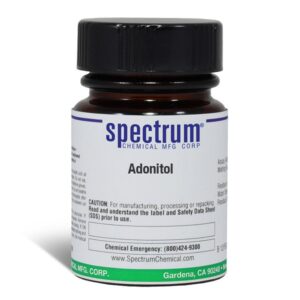
Adonitol
$135.29 Add to cart View Product DetailsAdonitol
-

Adonitol
$498.67 Add to cart View Product DetailsAdonitol
-

Adonitol
$1,253.25 Add to cart View Product DetailsAdonitol
-
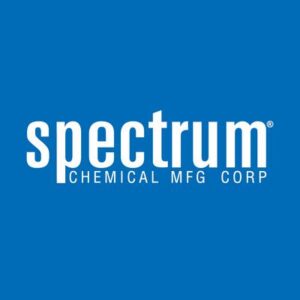
Adonitol
$39,360.58 Add to cart View Product DetailsAdonitol


